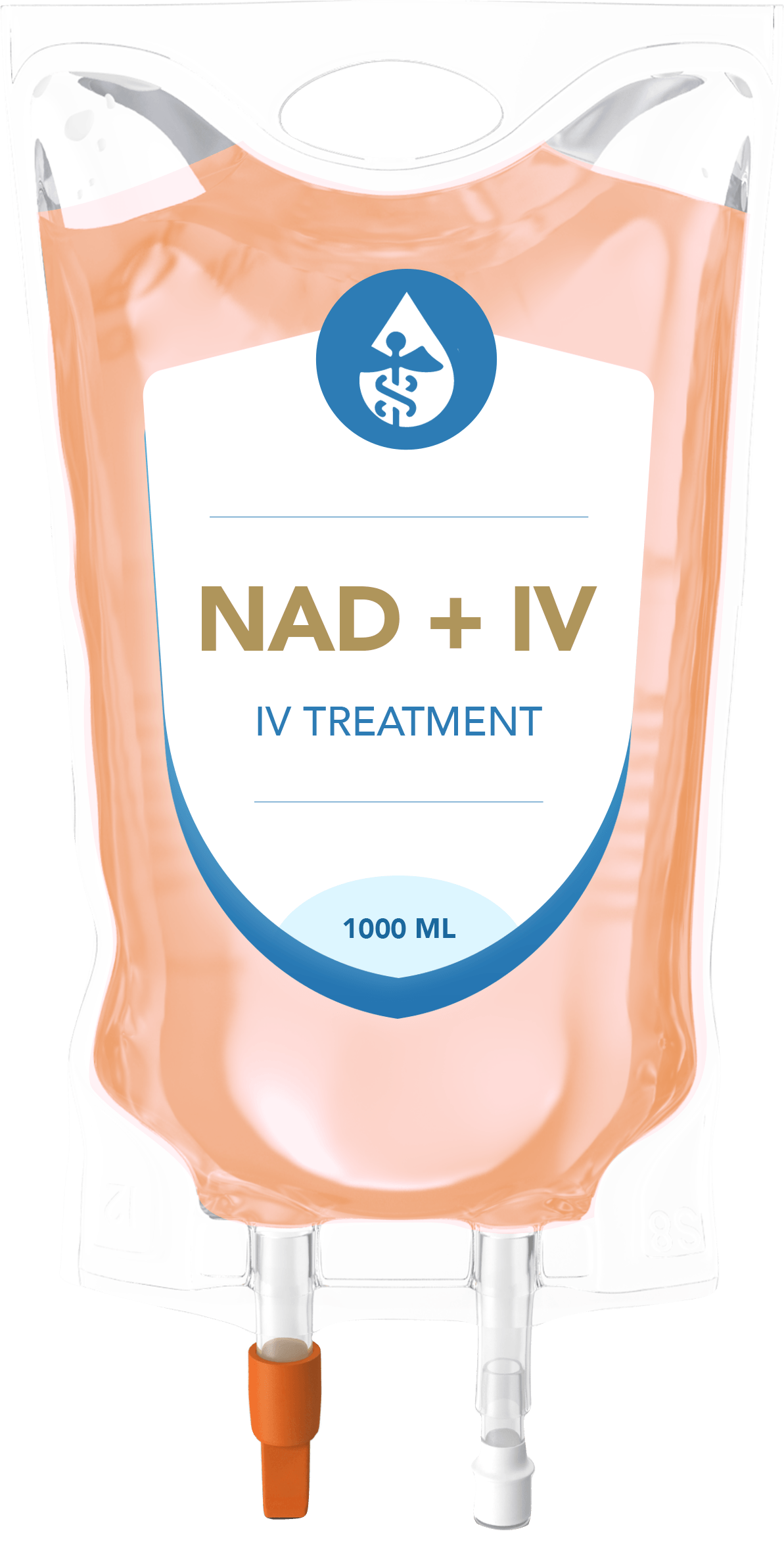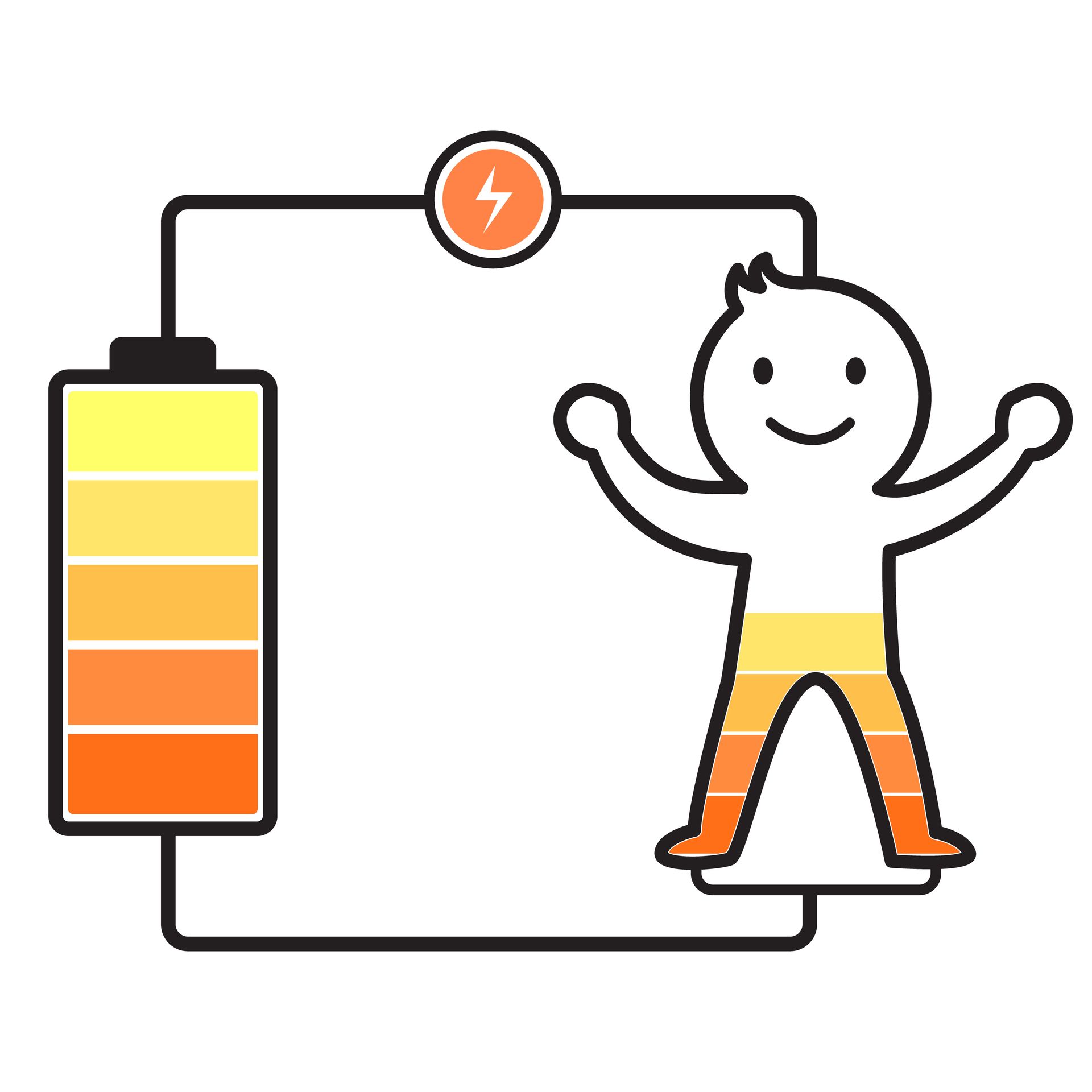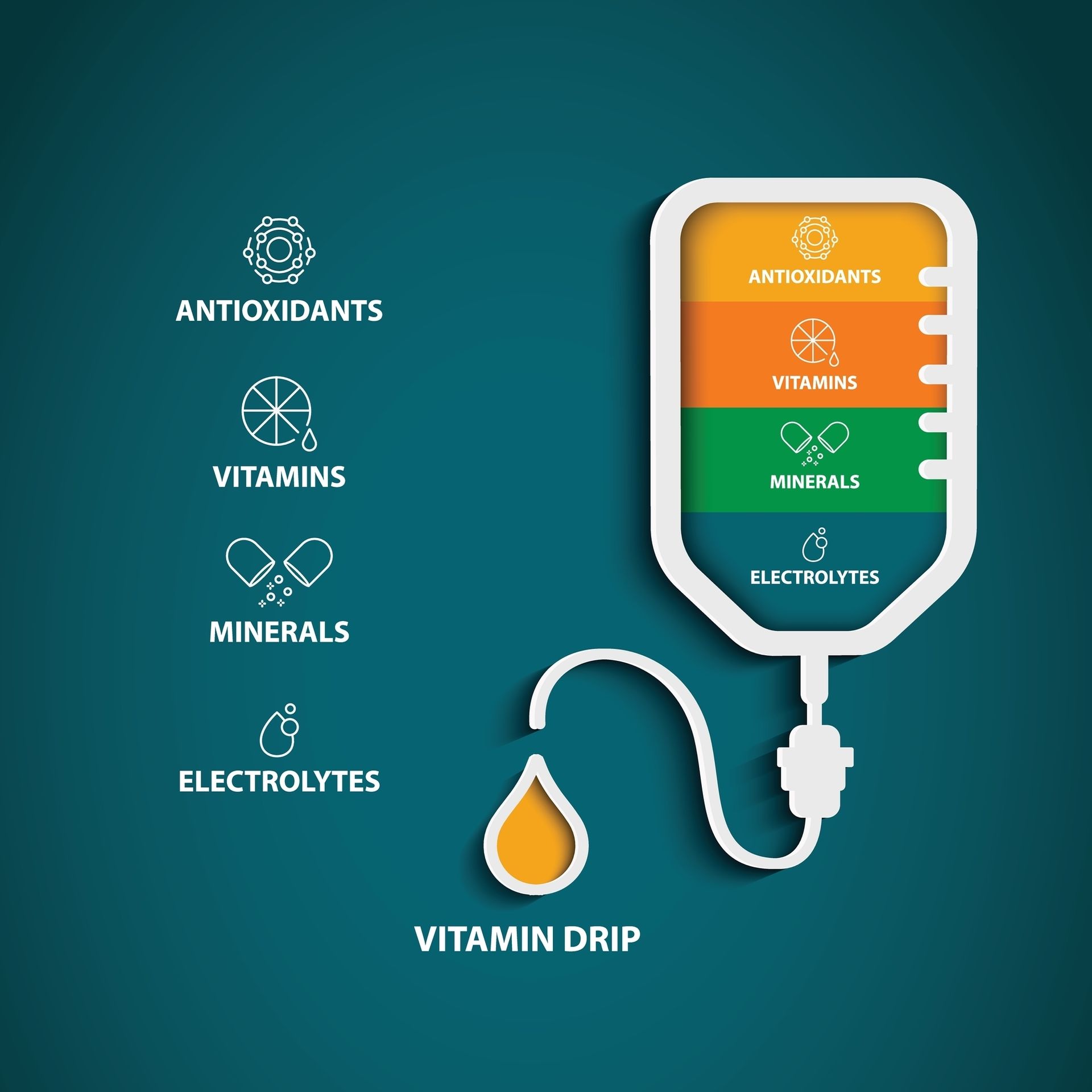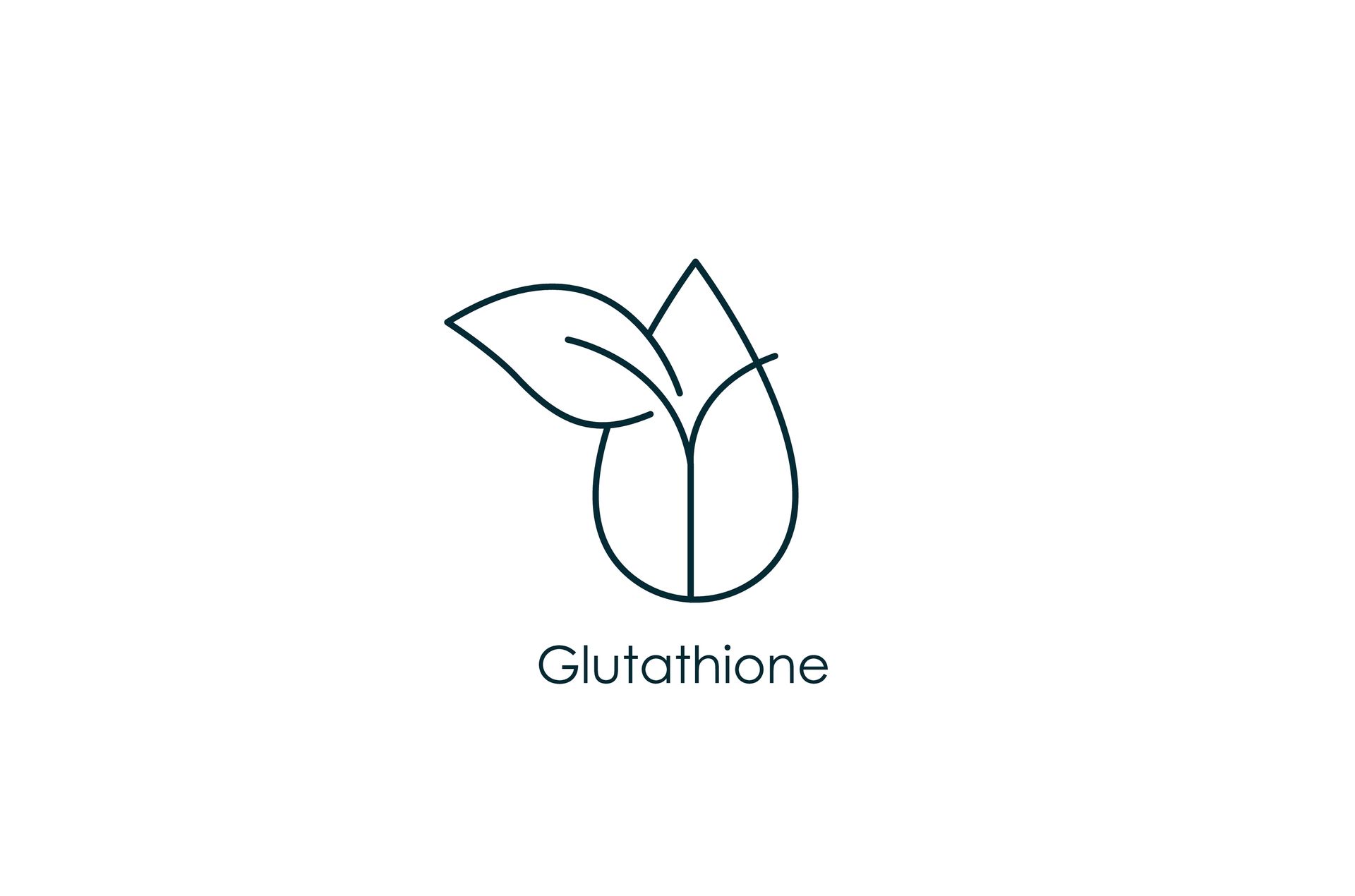Articles and Information
Maximize Your Health: The Role of IV Therapy in Immune Support
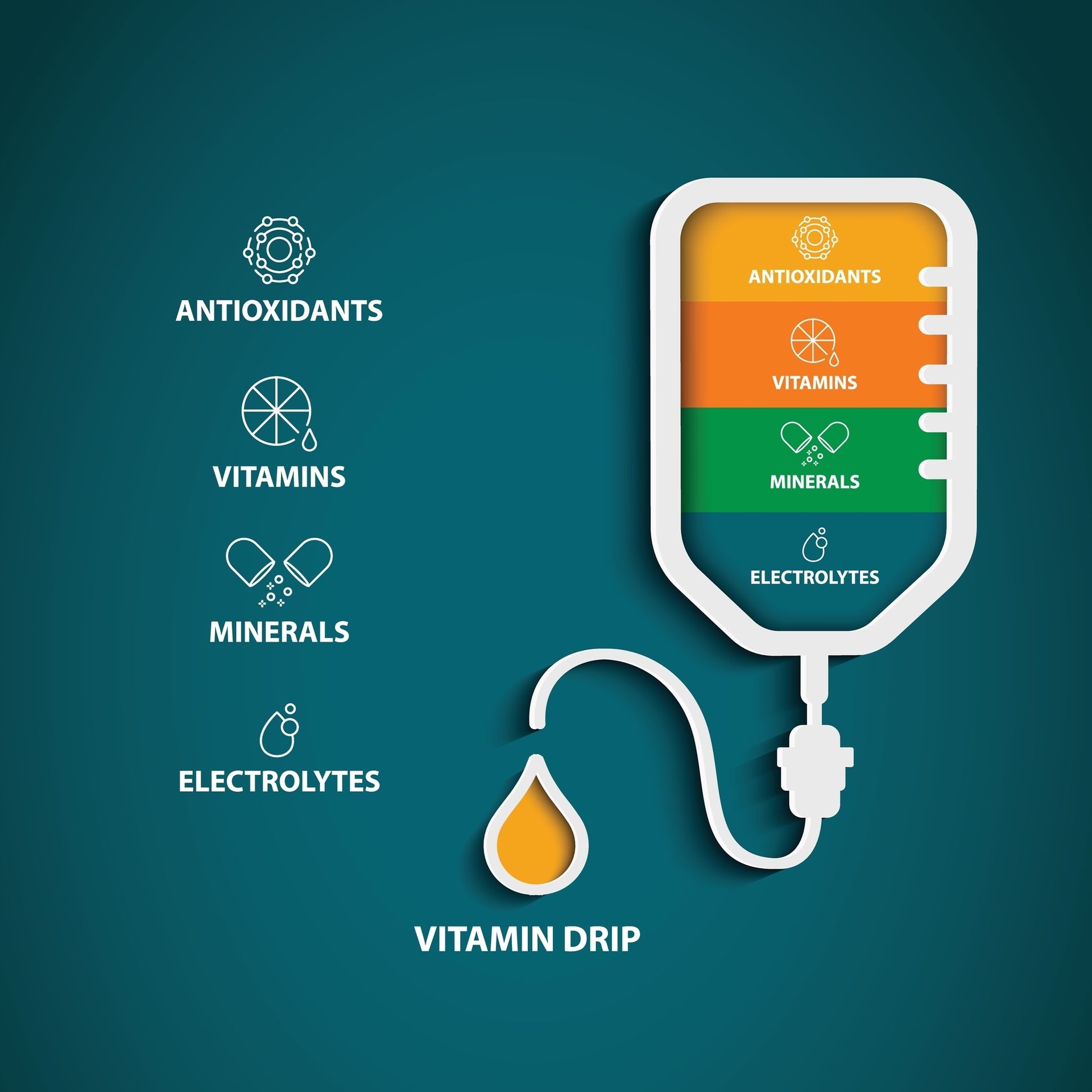
In today's fast-paced world, maintaining optimal health has become increasingly crucial. One innovative approach gaining traction is IV therapy, which aims to enhance health and immune function. This article delves into the fundamentals of IV therapy and its significant role in supporting the immune system.
Understanding the Basics of IV Therapy
What is IV Therapy?
Intravenous (IV) therapy is a medical procedure that delivers fluids, medications, and nutrients directly into a patient's vein. This method ensures rapid absorption and distribution throughout the body, bypassing the gastrointestinal tract. It is commonly used for hydration, nutritional support, and the treatment of various medical conditions.
IV therapy can be tailored to specific health needs, offering a versatile solution for individuals looking to enhance their well-being. The procedure is typically administered in a clinical setting or wellness center by qualified healthcare professionals. Patients may seek IV therapy for a variety of reasons, including recovery from illness, post-operative care, or simply to replenish lost nutrients after strenuous physical activity. The flexibility of IV therapy allows for customized formulations that can include a mix of vitamins, electrolytes, and even medications, making it a popular choice among athletes and those with demanding lifestyles.
The Science Behind IV Therapy
The underlying principle of IV therapy is based on the body's need for essential nutrients and hydration to function optimally. When nutrients are administered directly into the bloodstream, they bypass the digestive system, leading to a higher bioavailability. This means that the body can utilize these nutrients more efficiently.
Additionally, clinical studies indicate that certain nutrients, such as vitamins, minerals, and antioxidants, can play a significant role in boosting the immune response. By ensuring these elements are abundant in the bloodstream, individuals can better fend off illnesses and recover from stressors. For instance, vitamin C, known for its immune-boosting properties, is often included in IV drips to help combat infections and promote overall health. Moreover, the hydration aspect of IV therapy cannot be overlooked; it is particularly beneficial for those suffering from dehydration due to illness, heat exposure, or intense physical exertion. This rapid rehydration can lead to improved energy levels and cognitive function, making it an appealing option for many seeking a quick health boost.
The Connection Between IV Therapy and Immune Support
How IV Therapy Boosts the Immune System
IV therapy fosters immune support through the infusion of vital vitamins and minerals that strengthen the body's defense mechanisms. For instance, high doses of Vitamin C, essential for collagen production and immune cell function, have been shown to enhance immunity.
Moreover, other nutrients delivered via IV, such as zinc and magnesium, play crucial roles in regulating immune responses, aiding in cell repair, and combatting oxidative stress. Consequently, an IV infusion enriched with these elements can significantly bolster immune health.
Key Nutrients Delivered Through IV Therapy
When considering IV therapy, it's essential to understand which nutrients are commonly included in immune support formulations. Here are some key components:
- Vitamin C: Known for its antioxidant properties and crucial role in immune function.
- Zinc: A mineral that supports various immune cell functions and is vital for overall immune health.
- Magnesium: Helps in regulating inflammation and enhances the activity of immune cells.
- B Vitamins: Important for metabolic functions and overall cellular health, contributing to immune system performance.
These nutrients collectively help in enhancing immune response and provide additional health benefits, making IV therapy a desired option for proactive health management.
Benefits of IV Therapy for Immune Support
Faster Nutrient Absorption
One of the most significant advantages of IV therapy is its ability to provide immediate nutrient absorption. Unlike oral supplements, which can take hours to digest, IV therapy delivers nutrients directly into the bloodstream.
This immediate availability can be particularly beneficial for individuals experiencing illness or fatigue, as it allows the body to receive a concentrated dose of essential nutrients without the delay of digestion.
Customized Treatment Plans
IV therapy is not a one-size-fits-all solution. Healthcare providers can customize treatment plans tailored to individual health needs. Whether you're looking to enhance your immune system, recover from illness, or increase overall wellness, a qualified practitioner can create a specific blend of nutrients ideal for you.
This personalized approach ensures that each patient receives precisely what their body requires, promoting more effective results.
Risks and Considerations of IV Therapy
Potential Side Effects of IV Therapy
While IV therapy is generally safe when performed by professionals, potential side effects may arise. Common reactions can include discomfort at the injection site, bruising, or swelling. In rare cases, individuals may experience more severe reactions, such as allergic responses or infection.
It's essential to discuss any concerns with a healthcare provider prior to treatment. They can help weigh the benefits against the risks and determine if IV therapy is appropriate for you.
Who Should Avoid IV Therapy?
Although IV therapy can be immensely beneficial, it may not suit everyone. Individuals with certain health conditions, such as kidney disease, heart problems, or specific allergies, should approach IV therapy with caution. Pregnant or breastfeeding women should also consult their healthcare provider before receiving treatment.
Additionally, those with a history of adverse reactions to intravenous treatments may need to explore alternative methods for achieving their health goals.
The Process of Getting IV Therapy for Immune Support
What to Expect During Your First IV Therapy Session
When you arrive for your first IV therapy session, a healthcare professional will assess your health history and discuss your specific needs. After deciding on the appropriate nutrients, they will prepare the IV solution and insert a small catheter into your vein.
During the infusion, you'll be able to relax – many clinics provide a comfortable setting with options to watch TV, read, or even take a nap while receiving treatment. The duration of the therapy typically ranges from 30 minutes to a couple of hours, depending on the complexity and volume of the infusion.
Maintaining Your Immune Health Post-IV Therapy
After receiving IV therapy, it’s crucial to follow recommendations for maintaining your immune health. Staying hydrated and continuing to consume a balanced diet full of vitamins and minerals will help reinforce the benefits gained from the treatment.
Regular follow-up sessions may also be beneficial, based on your healthcare provider's guidance. They can help monitor your progress and make any necessary adjustments to your treatment plan to keep your immune system functioning optimally.
In conclusion, IV therapy offers a powerful method for enhancing immune support through direct nutrient delivery. Understanding its basics, benefits, and considerations can empower individuals to make informed health decisions. If you're looking to boost your immune health, IV therapy may just be the innovative solution you’ve been seeking.



